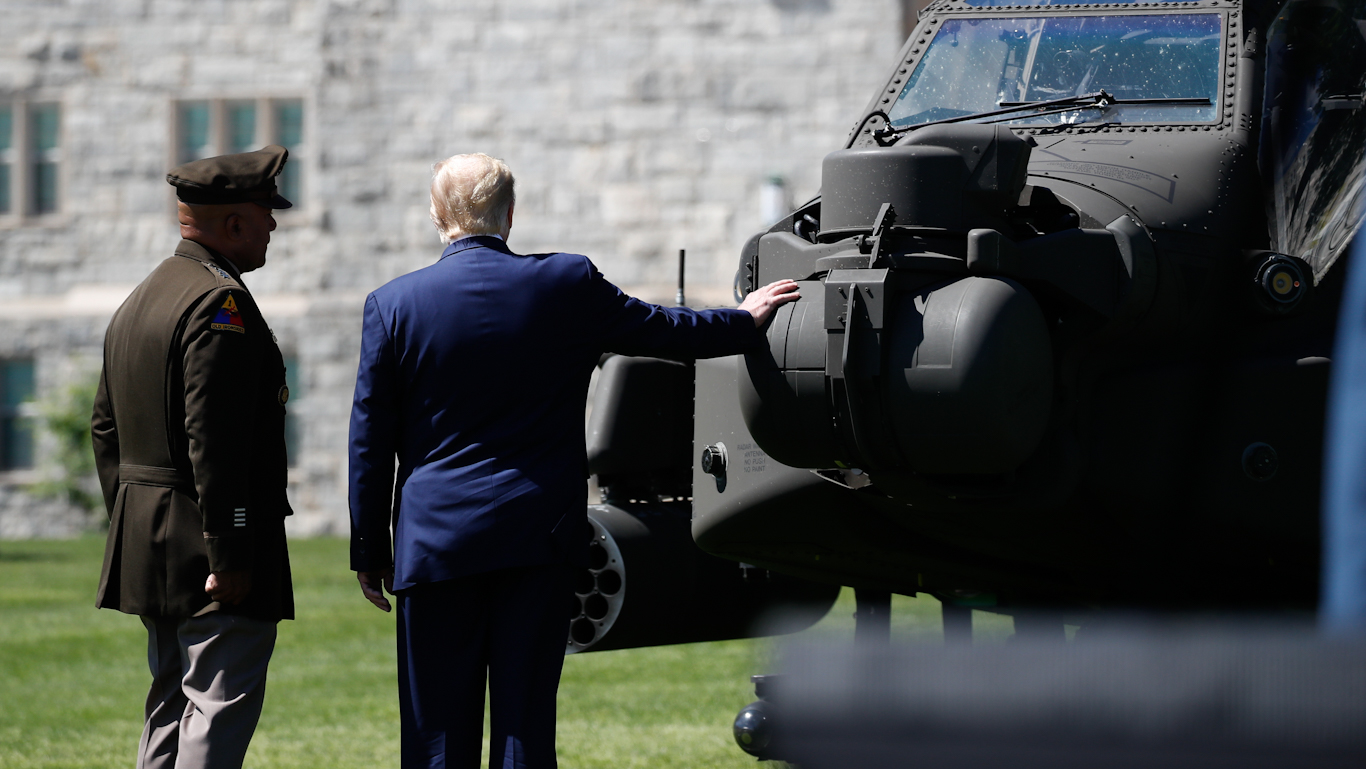As Congress Blocks Defunding the Pentagon, Here Are Ten Things We Could Have Spent the Money On
NPP Pressroom
MintPress News
Alan Macleod
07/22/2020

The majority of House Democrats joined with the Republican colleagues yesterday in voting down progressive legislation that would have cut the Pentagon budget by 10 percent ($74 billion) and used the money to fund healthcare, housing, and education for the poorest Americans.
The amendment to the National Defense Authorization Act, sponsored by Barbara Lee (D–CA) and Mark Pocan (D–WI) was soundly defeated 93-324, with 139 Democrats joining all 185 voting Republicans in rejecting the idea. Despite the defeat, Pocan vowed to continue pushing an anti-war agenda. “We will keep fighting for pro-peace, pro-people budgets until it becomes a reality,” he said. Democrats who voted against the military budget cuts received over three times the contributions from the defense industry as those who voted for the reduction. Earlier today, the Senate also voted down the proposal.
The result will no doubt disappoint the majority of Americans as well. A poll conducted last week by Data for Progress found that 56 percent of the country supported the idea to defund the military and use the money to fight COVID-19 alleviate the growing housing crisis. Democrat-voters supported the plan by 69 to 19 percent, with Republicans also backing it, by 50 to 37 percent. The proposal is hardly a radical shift; the military’s budget has increased by around 20 percent under President Trump alone, reaching near-historic highs.
The National Priorities Project, a part of the Institute for Policy Studies think tank, put together a list of ten better uses for the $74 billion than giving it to one of the world’s largest bureaucracies. This included:
- Housing every one of the United States’ over half a million homeless people.
- Creating more than one million infrastructure jobs across America, especially in many of the most economically depressed locations.
- Conduct two billion COVID-19 tests, or six tests per person (44 times as many as has already been done).
- Easily close the $23 billion funding gap between majority-white and majority non-white public schools.
- Fund free college programs for more than two million of the poorest American students.
- A revolution in clean energy. $74 billion could create enough solar and/or wind energy to meet the needs of virtually every American household.
- One million well-paid clean energy jobs, enough to transition most dirty industry workers into renewables.
- Hire 900,000 new elementary school teachers, or nine per school, creating a golden age of education.
- Send a $2,300 check to the more than 32 million currently unemployed people across the country.
- Purchase enough N95 masks for all 55 million essential workers to use, one per day, every day for a year, with change to spare.
Ashik Siddique of the National Priorities Project told MintPress that he was disappointed with the results, but that he was hopeful for the future:
It’s important to note how quickly the political landscape is shifting around this issue. This is the first time in decades that Congress has seriously considered reinvesting away from Pentagon spending. Just a few years ago, it would have been hard to imagine getting even 93 votes in the House and 23 in the Senate — or nearly 40 to 50 percent of the Democratic Caucus — to cut the Pentagon budget by 10 percent, as they did this time.
That sets up a much stronger baseline to work from next year — especially since the budget caps put in place by the Budget Control Act of 2011 will expire, giving Americans the chance to more deeply transform this country’s militarized agenda in a way that has not been on the table for decades.”
Siddique’s figures demonstrate just how much money is spent on war and what could be possible in the United States if there was a paradigm shift away from bloated military spending. Siddique’s figures demonstrate just how much money is spent on war and what could be possible in the United States if there was a paradigm shift away from bloated military spending. The U.S. military budget is by far the largest in the world, rivaling that of all other countries combined. More than half of all discretionary spending goes to the Pentagon, with the U.S. spending far more per capita on weaponry than comparable countries.